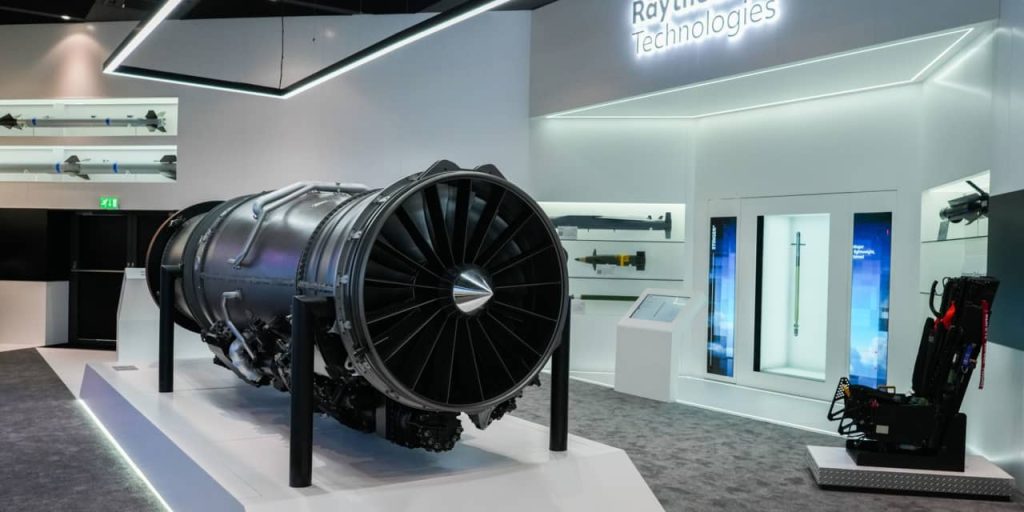Aerospace and defense giant
RTX
posted a quarter with no new surprises. That is enough for investors. The stock is higher.
RTX, on Tuesday morning, reported adjusted third-quarter earnings per share of $1.25 from sales of $19 billion.
Wall Street was expecting $1.22 a share from sales of $18.6 billion. A year ago in the third quarter of 2022, RTX reported EPS of $1.21 from sales of $17 billion.
Along with current results, full-year guidance was updated. RTX expects 2023 EPS of about $5 and adjusted sales of $74 billion. When reporting second-quarter results, sales guidance was increased to a midpoint of $73.5 billion, up from a prior midpoint of $72.5 billion. Earnings guidance was increased to a midpoint of $5 a share from a prior midpoint of $4.98. Wall Street currently projects 2023 earnings of $5.01 a share, according to FactSet.
Free cash flow guidance was raised to $4.8 billion from prior guidance of $4.3 billion.
“…this was a sound operating quarter from RTX, with no change to the GTF plan, good aftermarket growth, and robust cash flow,” writes Vertical Research Partners analyst Robert Stallard. “We would expect the shares to perform well on the back of these numbers.”
Indeed. RTX stock was up 8.2% in premarket trading at $79.10 apiece.
S&P 500
and
Dow Jones Industrial Average
futures are up about 0.6% and 0.5%, respectively.
Results were good enough and, more important, contained no additional surprises. RTX shares tumbled 10.2% after second-quarter earnings were reported. That was after the company reported a problem with its geared turbofan jet engine that powers planes such as the
Airbus
(AIR.France) A321.
“We have made significant progress on our assessment of the Pratt & Whitney powder metal manufacturing matter and expect the financial impact to be in line with the previously disclosed charge,” said RTX CEO Greg Hayes in a news release. Pratt is the name of RTX’s engine division. “We are now focused on executing on our fleet management plans and are working relentlessly to mitigate further disruption to our customers. We do not expect any significant future incremental impact as a result of these fleet management plans.”
No more charges is good news. There were several earnings and sales charges in the third quarter related to the issue, but investors knew those were coming. The after-tax impact on earnings amounted to about $2.2 billion. The unadjusted EPS number was a loss of 68 cents.
Coming into Tuesday’s trading, RTX shares were down about 19% over the past 12 months, showing how much the geared turbofan engine has weighed on investor sentiment. Shares of
General Electric
(GE), a jet engine competitor, were up about 86%.
Boeing
(BA) shares are up about 27%.
Write to Al Root at allen.root@dowjones.com
Read the full article here
